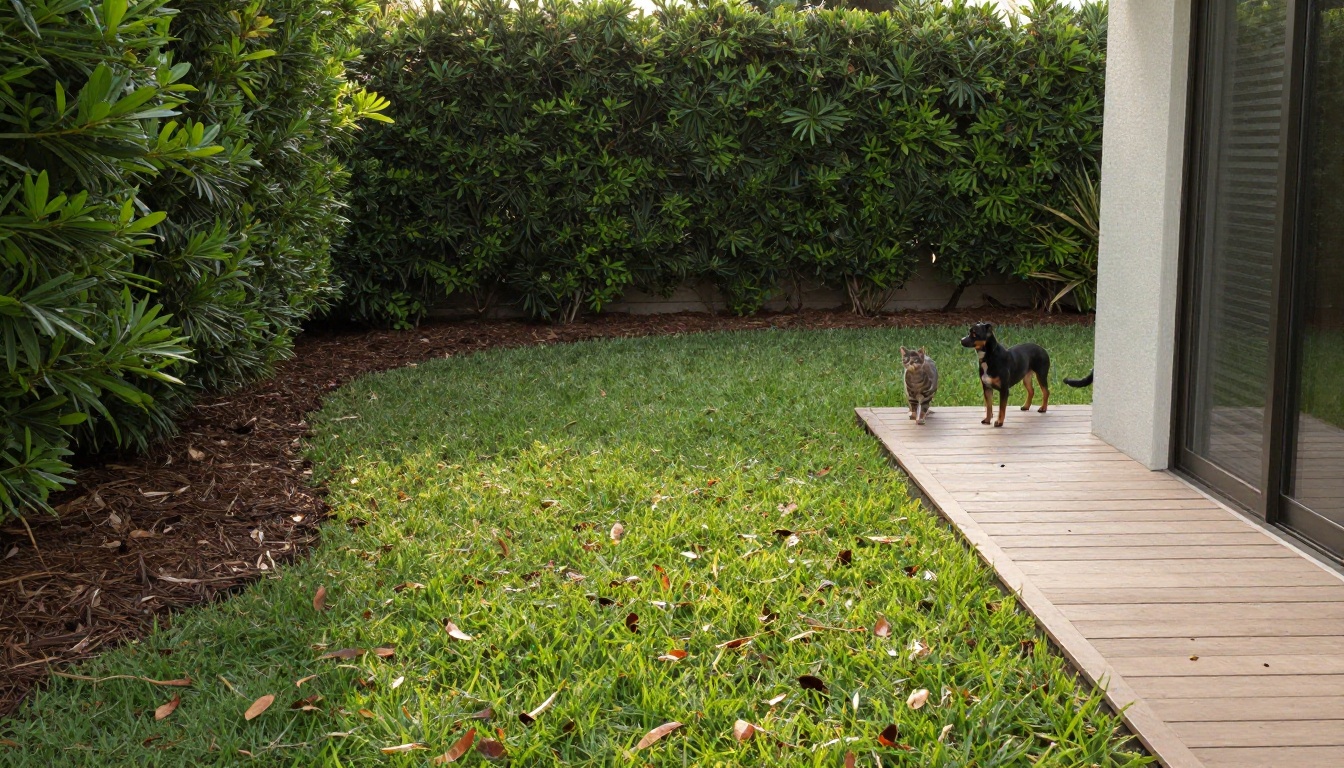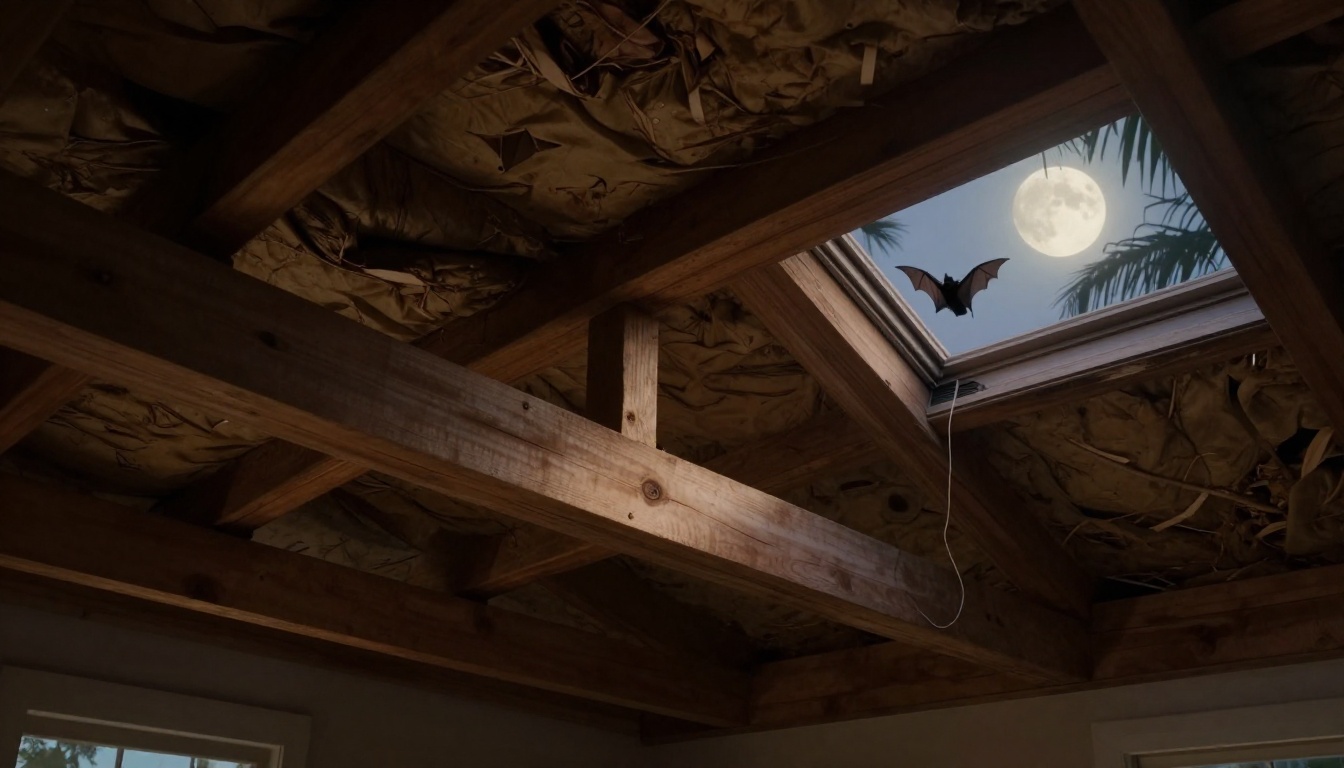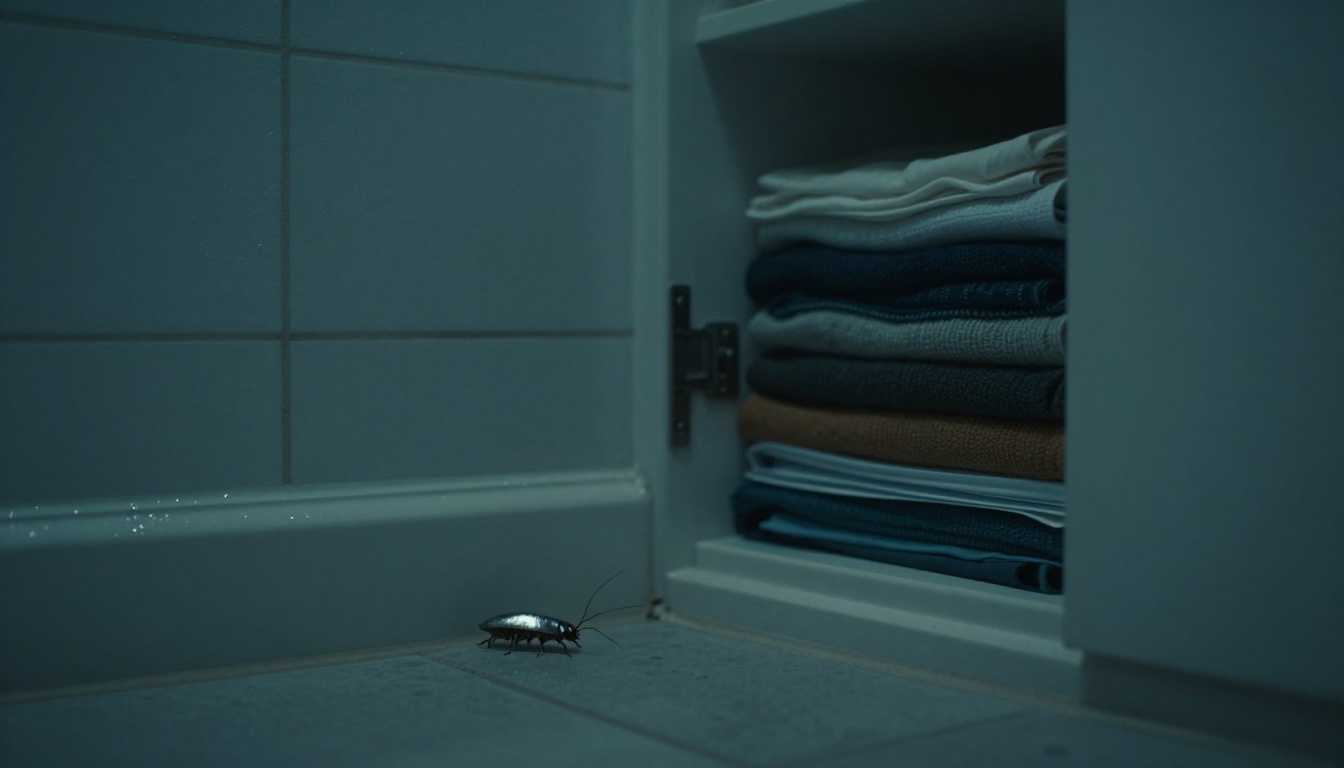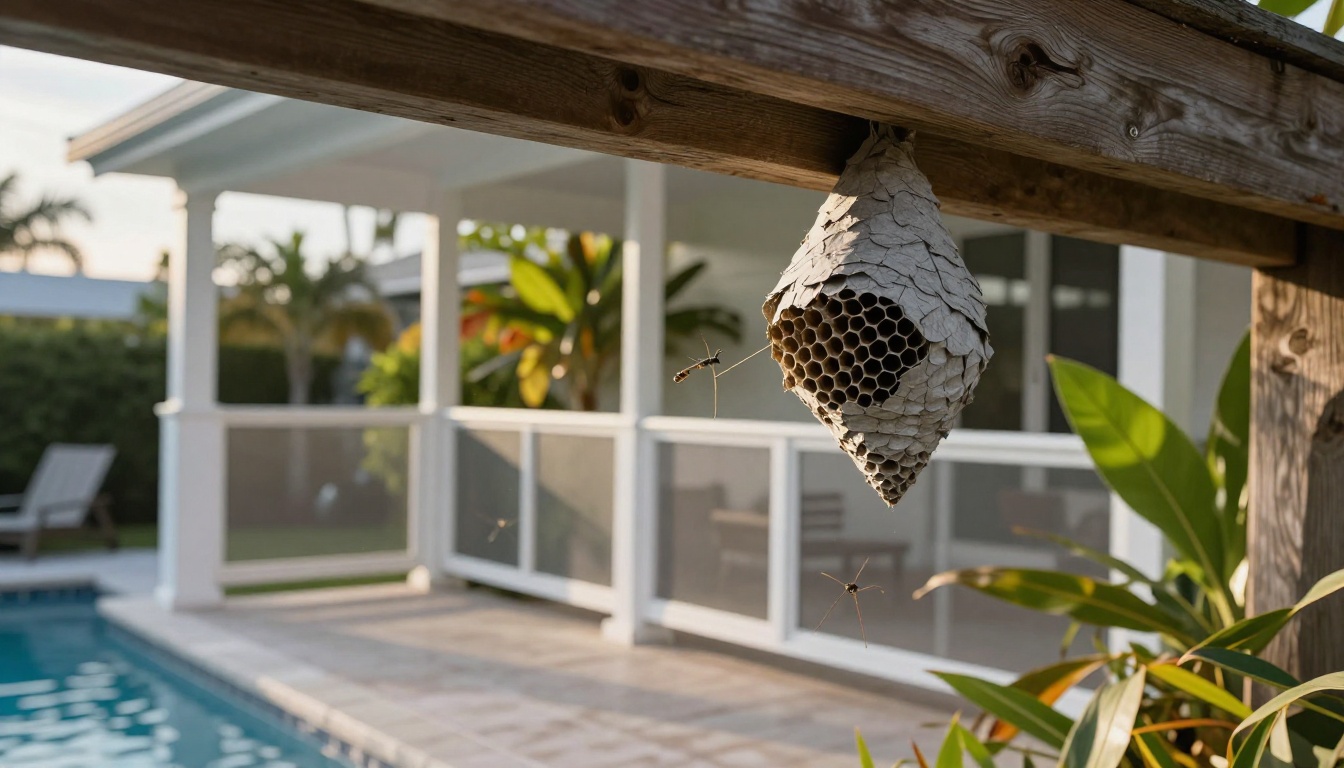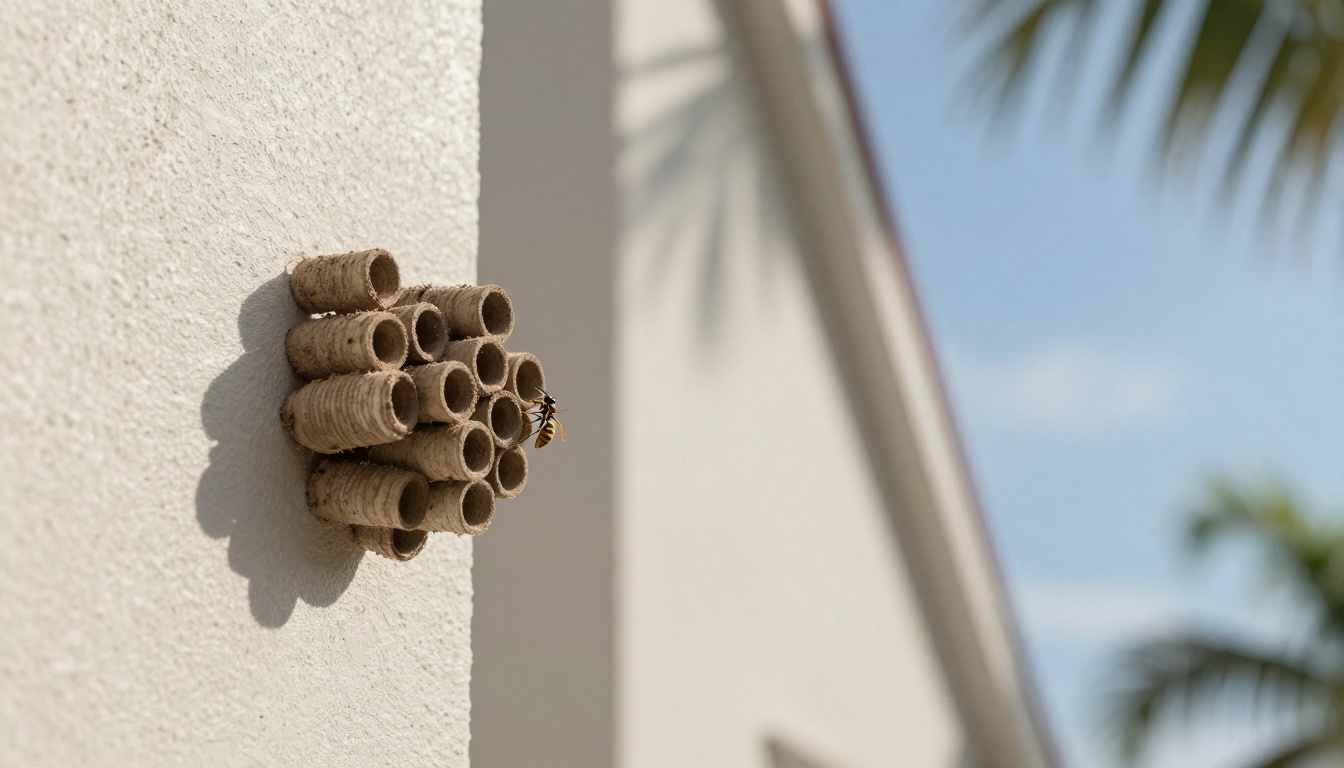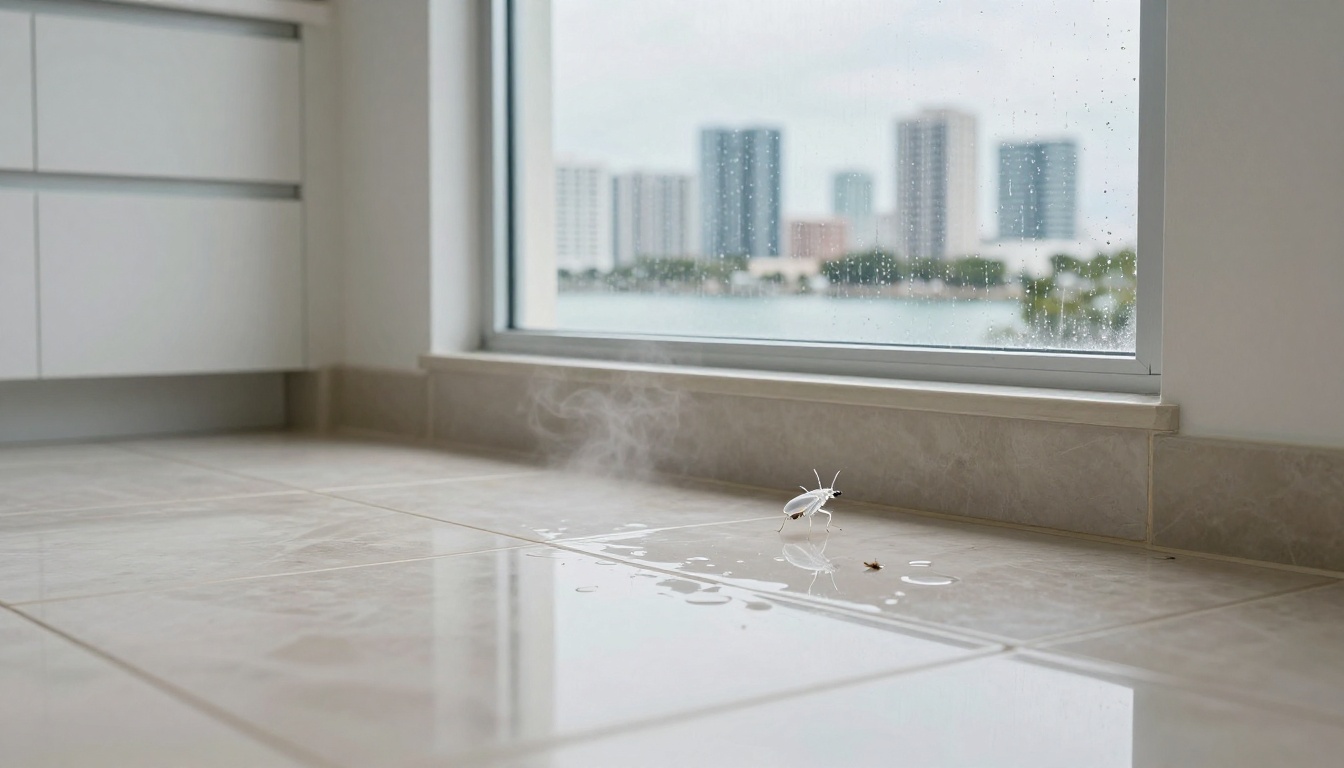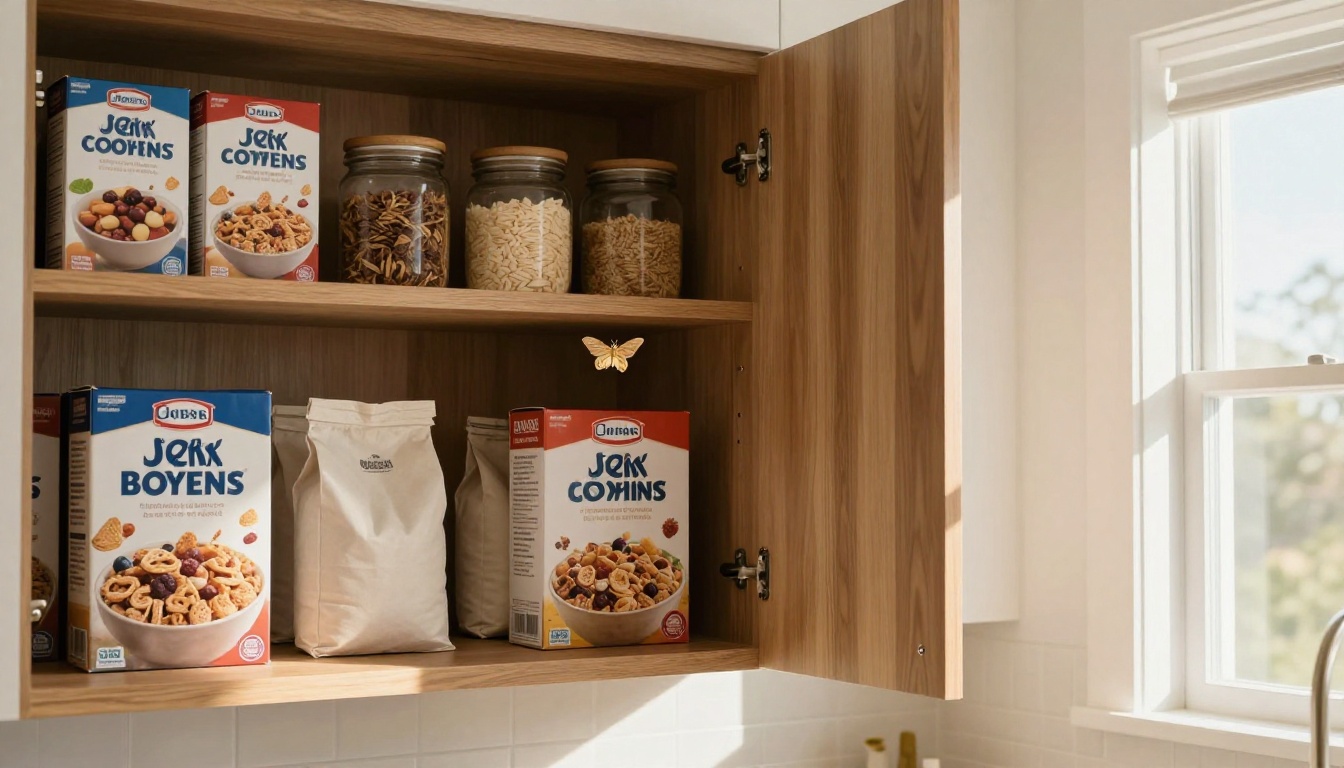The Homeowner's Guide to Termite Prevention and Control in Cape Coral
The Homeowner's Guide to Termite Prevention and Control in Cape Coral
Understanding Termite Risks in Cape Coral
Cape Coral’s warm, humid climate makes it a hotspot for termite activity. The combination of high temperatures and frequent rainfall creates an ideal environment for termites to thrive. These pests are drawn to moisture-rich areas, and the region's soil conditions often provide easy access to homes. As a result, Cape Coral homeowners face a higher risk of infestations compared to many other parts of the country.
In addition to the climate, both subterranean and drywood termites are prevalent in this area, each posing significant threats to property. Subterranean termites tunnel through the ground and can cause extensive damage to foundations, while drywood termites nest directly in wood structures. Understanding these risks is the first step toward protecting your home from costly repairs and structural damage. Now, let’s explore the specific types of termites you might encounter in Southwest Florida.
Common Types of Termites Found in Southwest Florida
The two most common termite species in Cape Coral are subterranean and drywood termites. Subterranean termites build their colonies underground and rely on mud tubes to travel between their nests and food sources. They are highly organized, with a strict caste system that includes workers, soldiers, and reproductives. Their preference for damp environments makes them a constant threat in this region.
Drywood termites, on the other hand, live entirely within the wood they consume, making them harder to detect. Unlike subterranean termites, they do not require contact with soil and can infest furniture, flooring, and structural beams. Both species are destructive in their own ways, but understanding their habits and nesting preferences can help homeowners take targeted preventive measures. With this knowledge, let’s move on to identifying the signs of a potential infestation.
Signs of a Termite Infestation in Your Home
Recognizing the early signs of a termite problem can save you from significant damage and expense. One of the most obvious indicators is the presence of mud tubes along your home’s foundation or walls. These pencil-sized tunnels are used by subterranean termites to protect themselves while traveling. Another warning sign is discarded wings, which are left behind after swarmers establish new colonies.
Visible wood damage, such as hollow-sounding walls or sagging floors, is another red flag. By the time these symptoms appear, the infestation may already be advanced. Early detection is crucial because termites can compromise the structural integrity of your home over time. If you notice any of these signs, it’s important to act quickly to address the issue. Next, we’ll explore how termites typically gain access to homes in Cape Coral.
How Termites Enter Homes in Cape Coral
Termites often enter homes through small cracks in the foundation or gaps where utility lines penetrate the structure. These entry points provide easy access to the interior, especially when combined with wood-to-ground contact, such as decks or fences attached directly to the house. Once inside, termites can spread rapidly, targeting wooden beams, flooring, and even furniture.
Landscaping features like mulch and overgrown shrubs can also create ideal conditions for termites by trapping moisture near the foundation. Excess humidity around your home attracts these pests and gives them the resources they need to survive and multiply. To prevent infestations, it’s essential to minimize these vulnerabilities. Let’s now discuss some effective prevention strategies you can implement today.
Effective Termite Prevention Tips for Homeowners
One of the simplest ways to prevent termites is to remove potential food sources from around your home. Clear away wood debris, old tree stumps, and stacks of firewood that could attract termites. Keeping your yard tidy not only improves curb appeal but also reduces the risk of infestation.
Another important step is maintaining a gap between landscaping materials and your home’s foundation. Mulch and plants should be kept at least two feet away to prevent moisture buildup. This buffer zone helps deter termites from approaching your house. Additionally, addressing plumbing leaks and improving drainage can eliminate excess water that might otherwise attract these pests.
Scheduling regular inspections is another key aspect of termite prevention. A licensed professional can identify early warning signs and recommend treatments before an infestation becomes severe. By combining these practices, you can significantly reduce your home’s vulnerability to termites. Now, let’s delve into what happens during a professional termite treatment.
Professional Termite Treatments: What to Expect
When you hire a professional for termite control , the process usually begins with a thorough inspection. Technicians will assess your property for signs of activity, identify entry points, and determine the extent of the infestation. This detailed evaluation allows them to tailor a treatment plan specific to your needs.
Popular treatment options include liquid barriers applied around the perimeter of your home and baiting systems installed in strategic locations. Liquid treatments create a chemical barrier that repels or kills termites on contact, while bait systems lure termites to poison-laced stations, eventually eradicating entire colonies. Each method has its advantages, and your technician will explain which one suits your situation best.
Safety and environmental considerations are also part of the equation. Modern termiticides are designed to minimize risks to people, pets, and ecosystems. However, it’s still important to follow all instructions provided by your pest control provider to ensure safe application. With professional treatments covered, let’s examine whether DIY methods are worth considering.
DIY Termite Control: Pros, Cons, and Precautions
Some homeowners opt for DIY termite solutions, such as boric acid or orange oil, which are marketed as natural alternatives to chemical treatments. While these products can be effective against minor infestations, they often lack the potency needed to eliminate large colonies or deeply embedded pests. Additionally, improper application can lead to incomplete coverage and ongoing problems.
For significant infestations or recurring issues, professional intervention is typically the better choice. Licensed exterminators have access to advanced tools and expertise that far exceed what’s available to the average homeowner. Relying on experts ensures comprehensive results and peace of mind. Moving forward, we’ll discuss how pre-construction measures can safeguard new homes from termite threats.
Pre-Construction and New Home Termite Protection
Builders and buyers alike benefit from incorporating termite protection into the construction process. Soil treatments applied before laying the foundation create a long-lasting barrier against subterranean termites. Physical barriers, such as stainless steel mesh or sand trenches, can also block termites from entering the structure.
These proactive measures are particularly valuable in Cape Coral, where termite risks are so prevalent. By addressing vulnerabilities early, homeowners can avoid the headaches and expenses associated with post-construction infestations. With preventative strategies for new builds covered, let’s shift our focus to maintaining defenses over time.
Long-Term Monitoring and Maintenance
Ongoing vigilance is crucial for keeping termites at bay. Annual inspections by a qualified professional allow you to catch emerging problems before they escalate. Monitoring stations placed around your property serve as an early warning system, alerting technicians to potential activity.
Maintenance doesn’t stop there—regularly inspecting your home for moisture issues, repairing damaged wood, and keeping landscaping clear of the foundation are equally important. By staying proactive, you can preserve your home’s integrity and avoid costly repairs down the road. Speaking of costs, let’s break down what you might expect to spend on termite prevention and control.
Cost Considerations and Warranties for Termite Control
The cost of termite services varies depending on factors like property size, infestation severity, and the chosen treatment method. Preventative measures, such as liquid barriers or bait systems, generally range from a few hundred to several thousand dollars. Remediation for active infestations tends to be more expensive due to the labor and materials involved.
Many companies offer warranties that cover future infestations or retreatment if necessary. These guarantees provide added value and reassurance, especially for homeowners investing in long-term protection. Before committing to a service, ask about warranty details and what they include. On a related note, let’s address concerns about environmental impact and family safety.
Environmental Impact and Family Safety
Modern termiticides and bait systems are formulated to balance effectiveness with safety. When applied correctly, these products pose minimal risk to humans, pets, and the environment. Reputable providers adhere to strict guidelines to ensure responsible use, giving homeowners peace of mind while protecting their properties.
Choosing a Termite Control Professional in Cape Coral
Selecting the right exterminator is critical for achieving lasting results. Look for licensed professionals with experience handling Florida’s unique termite challenges. Customer reviews and testimonials can provide insight into a company’s reliability and quality of service.
During consultations, ask about their inspection process, treatment options, and follow-up plans. A trustworthy provider will offer transparent communication and clear documentation of findings. With the right partner, you can tackle termite issues confidently and effectively. Let’s now answer some frequently asked questions about termite prevention and control.
FAQ: Termite Prevention and Control in Cape Coral
How often should I schedule termite inspections for my home?
Annual inspections are recommended for Cape Coral homeowners, though more frequent checks may be necessary for high-risk properties or those with a history of infestations. Regular assessments help detect problems early and prevent costly damage.
What are the most common warning signs of a termite problem?
Key indicators include mud tubes, discarded wings, hollow-sounding wood, and visible damage to structural components. Recognizing these signs promptly can make all the difference in mitigating an infestation.
Do termite treatments pose risks to my family or pets?
When applied by trained professionals, termite treatments are designed to be safe for families and pets. Always follow any post-treatment instructions provided by your pest control company to ensure optimal safety.
Is DIY termite control effective for large infestations?
DIY methods may work for minor issues but are rarely sufficient for large-scale infestations. Professional intervention is essential for complete eradication and long-term protection.
How long does a termite treatment last, and is a warranty recommended?
Treatment longevity depends on the method used, ranging from years for liquid barriers to annual renewals for bait systems. Warranties add valuable coverage and are highly recommended for ongoing protection.
Conclusion
Cape Coral homeowners face unique challenges when it comes to termite prevention and control. The region’s climate and environmental conditions make vigilance essential to protecting your property. By combining regular inspections, proven prevention strategies , and prompt action, you can safeguard your home from these destructive pests.
Take charge of your home’s future by consulting professionals, addressing vulnerabilities, and adopting a proactive approach. For more detailed advice tailored to your property, begin your journey today with The Homeowner's Guide to Termite Prevention and Control in Cape Coral.
Schedule a Free Inspection:


